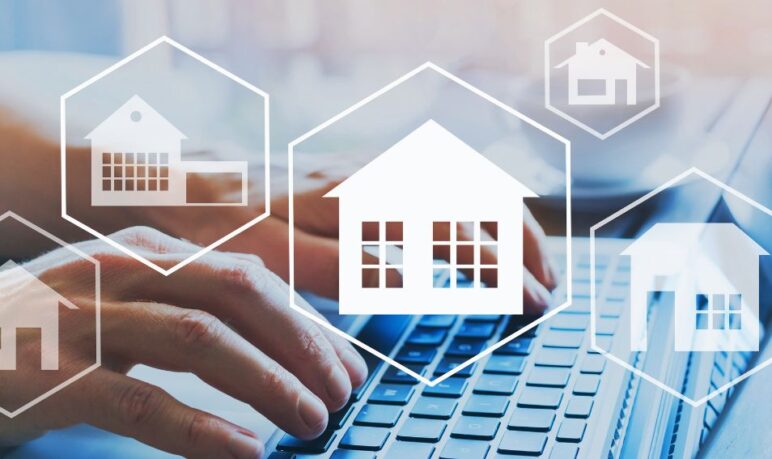
by Inez Kim June 25, 2024
Using analytics can make the role of a property manager more efficient and effective. Property management analytics involves collecting data from sources such as property management software and analyzing it to make well-informed decisions. This data might include information on tenant behavior, property maintenance requirements, and market trends.
With these insights, optimizing operations, enhancing tenant satisfaction, and increasing profitability becomes easier. It’s not just about improving operations; there is also a significant competitive advantage to using analytics in property management.
These analytics allow managers to anticipate future trends in the industry and prepare for changes, providing them with an advantage over property managers who rely solely on intuition. By leveraging these tools, property managers can achieve superior market performance, reduce costs, and improve return on investment.
In This Article
ToggleThe Importance of Data-Driven Decision-Making in Property Management

Data-driven property management uses data and analytics to support decision-making, moving away from reliance on intuition or past experiences alone. By collecting and analyzing data from various aspects of property management, managers can uncover insights that lead to better and more effective decisions.
Advantages of Data-Driven Decision-Making
Data-driven property management employs comprehensive data and analytics to improve decision-making, stepping beyond conventional methods based on intuition or experience alone. Here’s a closer look at how data-driven methods are improving property management:
- Optimization of Operational Efficiency: By analyzing data from various property management activities, managers can streamline processes and reduce operational costs, thus enhancing productivity.
- Enhanced Tenant Satisfaction: Property management analytics can help property managers better understand tenant preferences and behaviors, enabling them to offer tailored services. This focus on tenant needs can improve satisfaction rates, enhance loyalty, and reduce turnover rates.
- Financial Performance: Data-driven strategies assist in refining pricing models and identifying cost-saving opportunities, thereby maximizing revenue and property profitability.
- Maintenance and Risk Management: Predictive analytics can foresee maintenance needs before they become urgent, facilitating proactive management. This not only reduces costs but also prolongs the lifespan of property assets. It also aids in risk management by identifying potential issues early.
- Strategic Planning and Market Analysis: Access to comprehensive data allows property managers to conduct detailed market analysis and strategic planning, including evaluating investment opportunities and making decisions that support long-term business objectives.
- Technological Integration: Integrating advanced technologies like IoT devices and AI into property management supports real-time data collection and analysis, enabling more accurate forecasts and performance assessments.
- Trend and Pattern Identification: Data analysis helps property managers recognize trends and patterns, such as the best times for property maintenance or the amenities most tenants value.
- Setting and Tracking Key Performance Indicators (KPIs): Data helps set and monitor key performance indicators such as occupancy rates, rent collection efficiency, and maintenance expenses. These metrics provide a comprehensive view of a property’s operational performance and identify areas for improvement.
Role of Property Management Software in Gathering Analytics and How Can You Leverage It?

Today’s successful property managers must have the right tools and technologies to manage data effectively and make informed decisions. Property management software is crucial for the effective analysis of relevant data. These solutions gather data, process it, and then present it in a clear format that enables managers to make quick, accurate decisions.
By using advanced predictive property management analytics through comprehensive property management software, companies are able to lower vacancy rates and reduce maintenance costs while also enhancing overall tenant satisfaction.
Here are some ways you can leverage analytics from property management software:
Being Future-Ready With Predictive Analytics
Property Management Software harnesses predictive analytics by using historical data, statistical algorithms, and machine learning to predict future market trends, tenant behaviors, and maintenance needs. This technology provides property managers with advanced insights, allowing them to make proactive decisions to enhance operational efficiency and performance.
In the competitive real estate field, predictive analytics is essential for forecasting changes and preparing accordingly. For instance, by analyzing past rental trends, managers can adjust rental prices strategically to achieve optimal occupancy and maximize revenues. Similarly, insights into tenant behavior can help devise strategies to lower vacancy rates and increase tenant retention. This capability of predictive analytics in real estate makes it an indispensable tool for property managers aiming to stay ahead in the market. By analyzing historical data with advanced algorithms, managers can anticipate future trends and outcomes, which allows them to adopt more proactive and strategic management approaches.
Here are some specific applications:
- Maintenance Scheduling and Cost Prediction: Predictive analytics can forecast when maintenance is likely required, helping managers plan repairs in advance. This proactive scheduling helps avoid severe breakdowns and reduces the costs associated with emergency fixes.
- Vacancy Rate Reduction: By analyzing tenant data, predictive models can identify patterns that may lead to future vacancies. Understanding these patterns enables managers to develop strategies to enhance tenant satisfaction and retention, thus lowering vacancy rates.
- Preventing Tenant Dissatisfaction: Predictive analytics in real estate can identify potential causes of tenant dissatisfaction. By addressing these issues early, managers can improve the tenant experience and
Cost Efficiency
Apart from the return on investment, data analysis is also critical in reducing expenses and enhancing operational efficiency in property management. Property managers can optimize their processes by employing analytics and base their decisions on solid data, resulting in significant cost reductions.
For example, by analyzing utility consumption, managers can detect areas where resources are being wasted and implement measures to reduce these costs. Property management software aids significantly in this regard by providing detailed analytics that support more efficient and cost-effective operations.
Here are several key areas where data analysis proves beneficial:
- Utility Management: Analyzing utility data helps identify wasteful practices, leading to the adoption of energy-saving measures and reductions in utility expenses.
- Marketing Optimization: Through data analysis, property managers can assess the performance of marketing strategies, allowing for smarter budget allocation. This leads to more effective tenant recruitment, optimizing the return on marketing investments.
- Operational Efficiency: Extensive data analysis improves decision-making across various property management areas, boosting operational efficiency, reducing costs, and increasing profitability.

Facing Competition With Data-Backed Findings
Leveraging analytics, Property Management Software can significantly enhance how managers operate within the competitive property management landscape. The software provides crucial insights by analyzing market data, identifying unique selling points, and understanding tenant preferences and competitor performance. This allows property managers to make informed decisions about positioning their properties more effectively in the market.
Additionally, the software aids in pinpointing the differentiating factors of a property by examining tenant feedback and market data. This includes highlighting amenities, services, or features most valued by prospective tenants, which is critical in developing marketing strategies. Using this data effectively helps attract and retain tenants, thereby improving the overall competitiveness and efficiency of property management operations.
Better Market Analysis and Positioning
Property Management Software is crucial in facilitating thorough market analysis and strategic positioning within the property management sector. It enables the collection and analysis of data on market trends, tenant preferences, and competitor performance. With this data, property managers can make more informed decisions regarding pricing, marketing, and property enhancements.
This software aids managers in identifying their property’s competitive advantages by providing insights into their competitors’ strengths and weaknesses. Such insights enable the development of strategies designed to not just meet but exceed market expectations through comprehensive market analysis.
Additionally, the software helps property managers identify market gaps and opportunities for differentiation. Managers can analyze data to uncover underserved segments or emerging trends that competitors may overlook. Leveraging this information, managers can position their properties more effectively, attracting a broader tenant base. Effective positioning involves developing property features and crafting clear, appealing messages about what the property offers.
This strategic approach is essential for making properties stand out in a crowded market, securing higher occupancy rates, and maintaining a satisfied tenant base.
Better Return On Investment
Property Management Software is a powerful tool for maximizing property management ROI through analytics. This software offers data-driven insights that enable property managers to initiate measures that enhance efficiency, reduce costs, and boost profitability.
Strategies to Increase ROI Using Analytics:
- Rent Optimization: The software allows managers to set competitive rental prices based on data-driven insights into market trends. This approach helps balance occupancy rates with revenue generation, ensuring that properties are priced optimally according to current market conditions.
- Predictive Maintenance: Property managers can schedule maintenance before small issues escalate into major, costly repairs by implementing predictive analytics. This proactive strategy reduces maintenance expenses and prolongs the lifespan of property assets.
- Tenant Retention: The software analyzes tenant behavior and feedback to pinpoint key factors contributing to tenant satisfaction. Understanding these factors helps property managers implement strategies to enhance tenant experiences, reduce turnover costs, and improve retention rates.
Measuring Success and Improving
Tracking specific metrics or performance indicators can fully assess analytics’ effectiveness in enhancing ROI in property management. These indicators serve as benchmarks to gauge the success of implemented strategies and highlight areas needing improvement.
To track the impact of analytics on ROI, several key metrics and KPIs are essential:
- Occupancy Rates: By calculating the occupancy rate over time, managers can determine the effectiveness of rent optimization and tenant retention strategies.
- Maintenance Costs: Monitoring expenditures on repairs and maintenance provides insights into how predictive maintenance strategies are reducing costs.
- Tenant Satisfaction: Gathering data on tenant satisfaction through surveys and feedback tools helps assess whether efforts to improve tenant retention are successful. Aim for high satisfaction scores.
- Net Operating Income (NOI): NOI is critical for assessing overall profitability, calculated by subtracting operating expenses from total revenues.
- Marketing ROI: Analyzing the return on marketing investments by comparing campaign costs to revenue generated from new leases helps fine-tune marketing strategies.
By focusing on these metrics, property managers can use analytics to make better decisions and significantly improve their return on investment.
Conclusion
Leveraging analytics in property management leads to more informed decision-making, operational efficiency, and competitive advantage. Data-driven insights allow property managers to optimize tenant satisfaction, anticipate market trends, and improve financial performance. Predictive analytics, in particular, enables proactive maintenance and strategic planning, reducing costs and enhancing property value.
Property management software plays a crucial role in gathering and analyzing data, providing managers with actionable insights. These tools help set competitive rental prices, reduce vacancies, and improve tenant retention. Ultimately, the adoption of analytics-driven strategies ensures a better return on investment and positions property managers for sustained success in a competitive market.
Frequently Asked Questions
Analytics improves efficiency by enabling data-driven decisions that streamline operations, reduce costs, and boost tenant satisfaction. It helps managers optimize processes, cut unnecessary expenses, and enhance management effectiveness.
Predictive analytics helps forecast trends and behaviors, allowing proactive decision-making. It can predict maintenance needs, tenant turnover, and market trends, which helps avoid costly repairs, reduce vacancy rates, and adjust rental prices accordingly.
Yes, property management analytics can reduce costs by identifying inefficiencies and waste. Analyzing energy usage can lead to more efficient systems, and predictive maintenance can prevent expensive repairs. Optimizing rent collection can also cut financial losses and administrative costs.
Property management software collects, organizes, and analyzes data from various sources. It tracks tenant behavior, financial performance, and operational efficiency, providing real-time insights that help managers make informed decisions quickly.